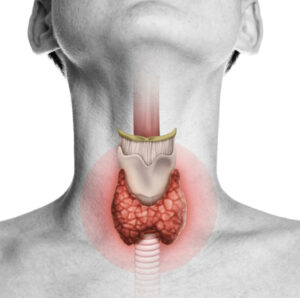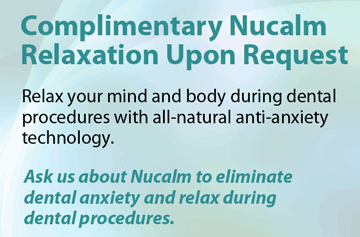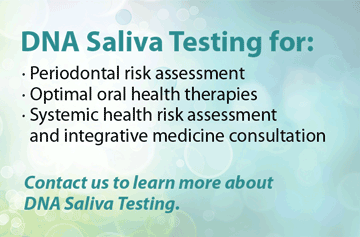
The thyroid may be a small gland, but it plays an outsized role in your overall health. From regulating your metabolism to impacting your energy levels and body temperature, the thyroid’s hormones influence nearly every aspect of your body’s function—including your oral health. For patients living with thyroid disorders, such as hypothyroidism or hyperthyroidism, understanding the relationship between thyroid health and oral health is critical to maintaining a healthy smile.
As a dentist, I’ve seen firsthand how early signs of thyroid imbalances often manifest in the mouth, offering an opportunity for early detection and better management.
What Is Thyroid Disorder?
Thyroid disorder occurs when the thyroid gland, located in your neck, produces too much or too little thyroid hormone. These hormones are vital for regulating your body’s metabolism, which is why imbalances can lead to widespread effects, including in your oral health.
- Hypothyroidism: When the thyroid underproduces hormones, slowing essential body functions. Symptoms include fatigue, weight gain, and sensitivity to cold.
- Hyperthyroidism: When the thyroid overproduces hormones, speeding up body functions. Symptoms include weight loss, anxiety, and rapid heart rate.
Thyroid disorders are more commonly diagnosed in women and can develop at any age, from infancy to late adulthood.
How Are Thyroid Health and Oral Health Linked?
Your oral health can be one of the first areas to show signs of thyroid dysfunction. This connection arises because the thyroid influences your body’s ability to heal, regulate inflammation, and maintain moisture levels—all of which are essential for a healthy mouth.
Common Oral Health Symptoms of Thyroid Disorders:
- Dry Mouth: Affects more than half of thyroid patients. Reduced saliva leads to difficulty swallowing, increased plaque buildup, and a higher risk of cavities.
- Inflamed and Bleeding Gums: Thyroid disorders can heighten gum sensitivity, delay healing, and increase the risk of gingivitis or periodontitis.
- Enlarged Tongue or Salivary Glands: Known as macroglossia, this can cause difficulty chewing, swallowing, and even breathing.
- Delayed or Accelerated Tooth Eruption: Thyroid imbalances can affect children’s dental development, leading to delayed or premature tooth eruption.
| Symptom | Hypothyroidism | Hyperthyroidism |
| Enlarged tongue or salivary glands | Common | Rare |
| Delayed tooth eruption in children | Common | Accelerated eruption |
| Thin enamel or slanted front teeth | May be present | Rare |
| Gum inflammation or infection | Slow healing | Faster progression |
Note: Patients with a thyroid disorder and gum inflammation can see improvement in both by focusing on good oral care at home and a personalized periodontal protocol with a biological dentist like Dr. Isaac Comfortes.
Protecting Your Oral Health with Thyroid Disease
Caring for your smile while managing thyroid disease requires a proactive and tailored approach:
- Regular Dental Checkups: Schedule exams at least twice a year and inform us about your thyroid condition. Symptoms such as dry mouth, gum inflammation, or delayed healing may point to thyroid imbalances.
- Customized Dental Care Plans: Certain medications or anesthetics may need to be adjusted. Dental procedures might be delayed if blood pressure or heart rate is unstable.
- Dry Mouth Management: Use toothpaste and mouthwash designed for dry mouth. Stay hydrated and consider products with xylitol, which can reduce harmful bacteria and promote oral health.
- Diet and Lifestyle Adjustments: Minimize sugar intake to lower cavity risk. Focus on a balanced diet with nutrients that support both thyroid and oral health, such as iodine and calcium.
Your Thyroid Health and Your Smile: A Team Approach
Managing thyroid disease is about more than balancing hormones; it’s about addressing the full-body effects, including oral health. By partnering with biological dentist Dr. Comfortes and your primary care provider, you can create a care plan that prioritizes your overall well-being and protects your smile.
With the right knowledge and proactive care, thyroid disease doesn’t have to get in the way of your oral health—or your confidence. Remember to communicate openly with your healthcare team, and don’t hesitate to ask questions about how your thyroid health impacts your dental care.





 The general, cosmetic and reconstructive dental practice of Encino dentist Dr. Isaac Comfortes is devoted to restoring optimal oral health, which supports whole body health and enhances the natural beauty of smiles.
The general, cosmetic and reconstructive dental practice of Encino dentist Dr. Isaac Comfortes is devoted to restoring optimal oral health, which supports whole body health and enhances the natural beauty of smiles.